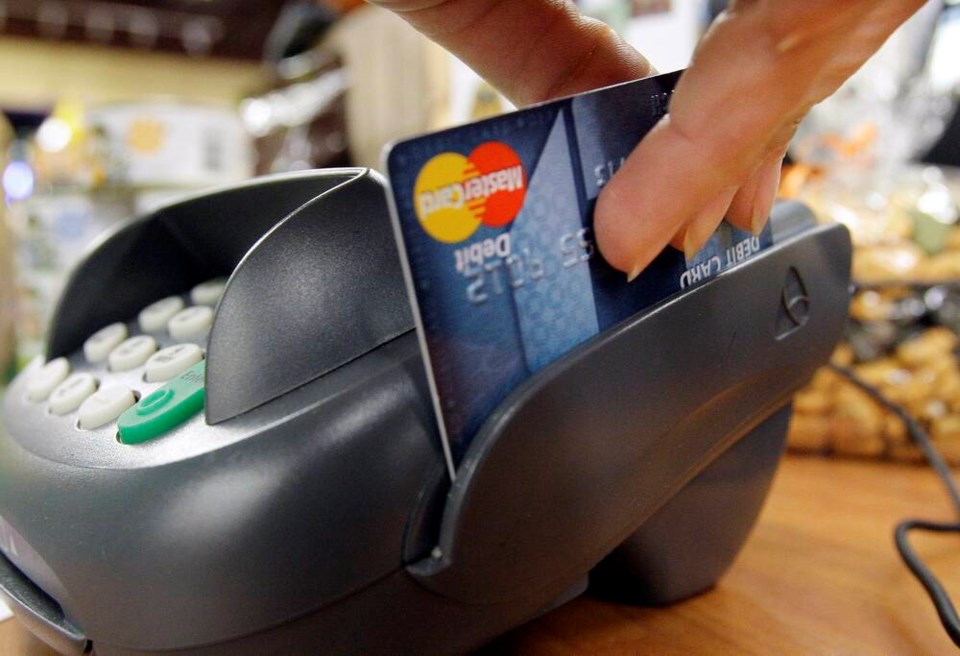Too bad British Columbia doesn’t have a Harmonized Sales Tax.
That’s not a sentence you’ll hear said very often in this province, given the political graves dug by those who supported an HST here (briefly) in 2009. But it’s true — especially after Prime Minister Justin Trudeau announced his new two-month GST exemption last week.
People who live in provinces with an HST — Ontario, Newfoundland and Labrador, New Brunswick, Nova Scotia and Prince Edward Island — are going to get a better deal, with fewer administrative headaches, under the federal affordability measures, which runs Dec. 14 to Feb. 15.
That includes an up to 15 per cent total tax holiday on major items, under Ottawa’s affordability package.
That’s because when Ottawa drops the federal tax within an HST, the provincial sales tax disappears alongside it.
It’s not quite the same in British Columbia.
The province already doesn’t charge PST on many of the items Ottawa chose to exempt from the GST, including restaurant meals, groceries, children’s clothing, child car seats and books, and puzzles.
But children’s toys, board games, dolls and video game consoles are subject to B.C.’s seven per cent PST. So are Christmas trees. And the provincial tax rises to 10 per cent on alcohol.
That means an Ontario resident who buys a $450 Nintendo Switch for their kids for Christmas will go through the till tax-free, but a British Columbian will have to pay $481.50 due to the PST.
A bottle of Quails Gate Chardonnay, from Kelowna, will cost a Torontonian $26.95 at the LCBO, despite being shipped all the way across the country, but $29.69 back in Kelowna at the BC Liquor store.
A $49.98 Christmas tree at Home Depot in Mississauga goes for the sticker price exactly, but will run a Surrey resident $53.48 for the same tree, from the same chain.
It’s kind of a raw deal.
There’s no word yet from Premier David Eby if he plans to exempt alcohol, children’s toys and Christmas trees from the PST, to match up with the federal GST cut.
But it’s unlikely. The B.C. government won’t want to look like it’s making a conscious decision to encourage alcohol consumption during the holidays (even though, let's be honest, that’s how most of us survive the holidays).
Plus, during a year in which the government expects to run a record deficit of $8.9 billion, the province doesn’t have the fiscal room to start fiddling with the PST, which at $16.6 billion is the single largest source of revenue to the treasury. Provinces with the HST, however, are expected to get Ottawa to repay their lost provincial revenue.
It would also be a heck of a lot easier on small businesses if the B.C. government matched the federal exemptions.
The Retail Council of Canada called on B.C., Manitoba, Saskatchewan and Quebec to drop their PSTs, alongside provincial business groups who say it’s going to be a logistical headache to have to go through entire inventories and reclassify items as temporarily exempt from one tax but not the other for only two months.
For example, B.C.’s private liquor stores will have to examine every type of beer for its alcohol content — because only those under seven per cent alcohol are exempt by Ottawa from the GST. Then, two months later, they have to do it all over again. That’s kind of ridiculous.
We’ve fought long political wars in this province over the HST. And maybe because of that, we’ll never admit it’s a more efficient tax system. But the federal rebate is another reminder, there are costs — mainly borne by ordinary consumers — to keeping a separate provincial sales tax.
Rob Shaw has spent more than 16 years covering B.C. politics, now reporting for CHEK 撸奶社区 and writing for Glacier Media. He is the co-author of the national bestselling book A Matter of Confidence, host of the weekly podcast Political Capital, and a regular guest on CBC Radio.




